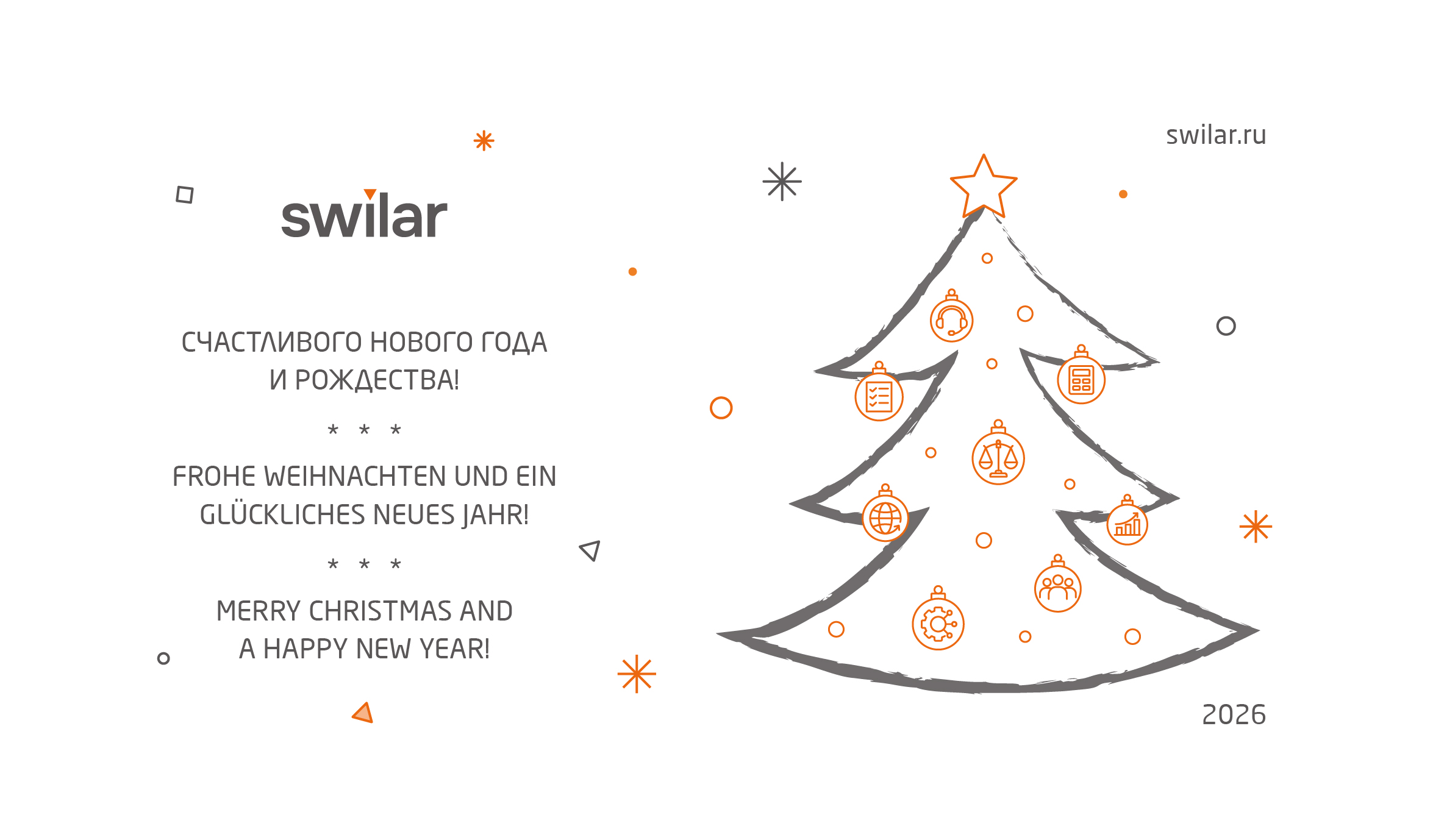Month: September 2022
Procedure for authorizing transactions with shares in the capital of limited liability companies defined
Earlier we informed you that on 08.09.2022 the President of the Russian Federation issued the Decree No. 618 (hereinafter referred to as “Decree”).
This Decree establishes the requirement to obtain permission fr om the Government Commission for Control of Foreign Investment in the Russian Federation (“Government Commission”) for transactions with shares in limited liability companies (“OOO”), if the parties to such transactions are persons from foreign countries that commit unfriendly acts against the Russian Federation.
On 19.09.2022 the Government of the Russian Federation issued the Resolution No. 1651 “On Amendments to Resolution No. 295 of the Government of the Russian Federation of 6 March 2022“ (the “Resolution”) that regulates the procedure for obtaining the respective approval of the Government Commission.
The list of cases wh ere the Government Commission is authorized to issue permits includes transactions resulting directly and/or indirectly in the establishment, modification or termination of rights to own, use and (or) dispose of shares in the authorised capital of OOOs or other rights allowing to determine the management conditions of such OOOs and (or) the conditions for their entrepreneurial activities.
According to the Resolution, in order to carry out the abovementioned transactions involving persons from foreign countries that commit unfriendly acts against the Russian Federation, the rules previously issued in relation to loans and credits with persons from unfriendly countries by Resolution of the Government of the Russian Federation No. 295 of 6 March 2022 will be fully applied.
It is envisaged that a permit to carry out a transaction or a group of transactions (“permit”) can be obtained by applying to the Ministry of Finance of the Russian Federation with an application and accompanying documents, the list of which is established by the Resolution of the Government of the Russian Federation No. 295 of 6 March 2022.
Please note that the Ministry of Finance of the Russian Federation can also be approached by federal executive bodies and (or) the Bank of Russia in order to issue a permit. In this case, the application and accompanying documents must be submitted to the relevant federal executive body and (or) the Bank of Russia.
The application and accompanying documents must be drawn up in Russian. If the original documents are in a foreign language, a duly certified translation into Russian (with an apostille of the competent authority of the state in which the document was drawn up) will be required.
The application and accompanying documents may be submitted both in hard copy and electronically, including in the form of electronic documents signed with a digital signature.
We will be happy to answer your questions and assist you in preparing the package of documents required to obtain the permit.
Contacts:
Maria Matrossowa
Yulia Belokon
Other news

10.02.2026
Environmental Fee: what changed since January 1, 2026 and what business should expect

23.12.2025
Dear colleagues, Please accept our sincere congratulations on the upcoming New Year and Christmas!
Transfer prices – Сhanges
On 26 March 2022 the Law No. 67-FZ was adopted, later clarifications of the Ministry of Finance were published – in the Letter No. 03-12-12/1/37761 of 26 April 2022 the Ministry of Finance informed that fr om 1 January 2022 the threshold for recognizing transactions as controlled was raised to 120 million rubles instead of the previous 60 million rubles valid for transactions in 2021. Similar clarifications were also issued later by the Federal Tax Service (No. ШЮ-4-13/6548@ of 27 May 2022).
The Tax Service also previously published a letter (No. ШЮ-4-13/2724@ of 5 March 2022) on the application of discounted prices that could result in transaction losses if certain legal entities are subject to sanctions. Such circumstances should be taken into account by the tax authorities when considering transactions and price levels.
Another novelty is the non-application of the 40% penalty on unpaid tax (at least RUB 30,000) for transactions in 2022-2023, regardless of the date of the contract (Russian Tax Code, Article 129.3). However, transfer documentation defining the price corridor and level must be available. Please note that the cancellation of penalties does not remove the risk of additional tax charges from the tax authorities.
In addition to updating the lim it and removing the penalty mentioned above, a number of other changes have been spelled out in Law 67-FZ of 26.03.2022.
With the new amendments, the so-called “safe margin” for interest rates in intragroup loan agreements will change between 2022 and 2023. If the interest is within this range (not above the maximum and not below the minimum), the company may recognise it as an expense in full for tax purposes. If the interest rate is outside this range, there is a risk of the expense not being recognised.
Based on the example of the euro (Euro short-term rate), the following interest rate ceilings for liabilities denominated in euro will be established as of 1 January 2022 (for USD or any other currency other than RUB, the values will be equivalent, applying the rates corresponding to the currency, such as SOFR for USD, SHIBOR for CNY, SONIA for GPB):
Minimum: STR rate in EUR +0% (previously stated as + 4% in the Tax Code);
Maximum: STR rate in euros +7% (+5% for SARON rates and contracts in Swiss francs, TONAR and Japanese yen).
For ruble-denominated liabilities, a range of 0 to 180% of the Bank of Russia key rate (previously 75 to 125%) has been adopted.
The interest rate ceilings for debt instruments have also been modified: for loans, overdrafts and intercompany receivables denominated in a foreign currency from 1 January 2022 to 31 December 2023, the maximum rate will be that of 01.02.2022 (86.5032 for euro); interest on liabilities during these two years will be determined at the rate on the last day of the reporting period and must not be higher than the rate on 01.02.2022.
Changes are also made to the calculation of the thin capitalisation rule – the value of liabilities (existing before 01.03.2022) in foreign currency for the purposes of controlled debt is determined at the regulatory rate on the last reporting day, and the rate cannot be higher than the rate set by the Central Bank as of 01.01.2022.
We would also like to point out that as a result of the suspension of tax information exchange between Russia and certain countries, Russian tax residents who are members of an international group of companies will have to send a “Country Report” to the tax authorities upon request. It is currently known that the UK (from 17.03.2022), Germany (from 01.04.2022), USA (from 05.04.2022) have temporarily stopped the exchange of tax information with the Russian Federation.
Contacts:
Eugenia Chernova
Olga Kireyeva
Other news

10.02.2026
Environmental Fee: what changed since January 1, 2026 and what business should expect

23.12.2025
Dear colleagues, Please accept our sincere congratulations on the upcoming New Year and Christmas!
New measures on transactions with shares of Russian companies
On 08.09.2022, the President of the Russian Federation issued Decree No. 618 which established a special procedure for transactions with shares in the authorised capital of limited liability companies (“OOO”).
In particular, these are transactions resulting directly and/or indirectly in the establishment, modification or termination of rights to own, use and (or) dispose of shares in the authorised capital of OOOs or other rights allowing to determine the management conditions of such OOOs and (or) the conditions for their entrepreneurial activities.
Now, for the purposes of performing the above transactions involving persons from foreign countries who commit unfriendly acts against the Russian Federation, permits issued by the Government Commission for the Control of Foreign Investment in the Russian Federation are required and, if necessary, must contain the conditions for performing such transactions.
The new rules do not apply to entities in the financial and fuel and energy sectors.
It is expected that the procedure for issuing the above permits by the Government Commission for Control of Foreign Investment in the Russian Federation will be approved by the Russian Government within 10 days after the Decree is issued.
Contacts:
Maria Matrossowa
Yulia Belokon
Other news

10.02.2026
Environmental Fee: what changed since January 1, 2026 and what business should expect

23.12.2025
Dear colleagues, Please accept our sincere congratulations on the upcoming New Year and Christmas!
VAT on e-services – Changes
We would like to draw your attention to the recent changes in tax legislation introducing new rules for charging and paying VAT.
Currently, and until September 30, 2022, there is a procedure for paying VAT on electronic services provided by foreign suppliers, in which the foreign supplier must independently register with the Federal Tax Service of the Russian Federation, obtain a TIN, submit a VAT return and pay it. From 01.10.2022 the Federal Tax Service and the Ministry of Finance presented the former (used until 2019) procedure for the payment of VAT from electronic services. In a letter dated 08.08.2022, the Federal Tax Service also explained the changes to be introduced.
This means that VAT is paid and recovered by the Russian organization receiving the services as a tax agent. At the same time, if a registered foreign provider of electronic services also provides non-electronic services, there is no tax agent liability for Russian buyers. However, the buyer has the right to pay VAT on such services himself (Letter of the Federal Tax Service of the Russian Federation dated 24.04.2019 №СД-4-3/7937). In practice, it is easier and more convenient for a Russian organization buying any services from a foreign supplier to transfer VAT to the Russian budget as a tax agent.
For all payments made to a foreign counterparty before 1 October 2022 under the old rules, the buyer is entitled to reimburse the VAT paid to the foreign seller.
However, these changes do not exempt foreign service providers from having to register with the FTS. The procedure for this action has also undergone changes; now a foreign organization can get registered by opening a bank account.
The principle is set out in Articles 83-84 of the Tax Code as amended by Federal Law No. 120-FZ of 1 May 2022.
The application for registration is completed, certified with an Enhanced Qualified Electronic Signature by an authorized person of the Russian bank and sent to the Federal Tax Service. Once the foreign organization has been registered, the certificate of registration is also sent electronically to the bank.
Banks have been obliged to check the registration status of a foreign client in the Open and Publicly Available Information of the Unified State Register of Foreign Entities and, if no information is available in the register, to send an application for registration.
As a reminder, tax registration and tax payment are different processes. As the regulators have not yet provided any other explanations, we recommend to maintain a conservative stance and continue to file zero VAT returns for foreign entities registered with the FTS, even considering the transition to the tax payment procedure via a tax agent.
We will be happy to answer your questions!
Contacts:
Eugenia Chernova
Olga Kireyeva
Other news

10.02.2026
Environmental Fee: what changed since January 1, 2026 and what business should expect

23.12.2025
